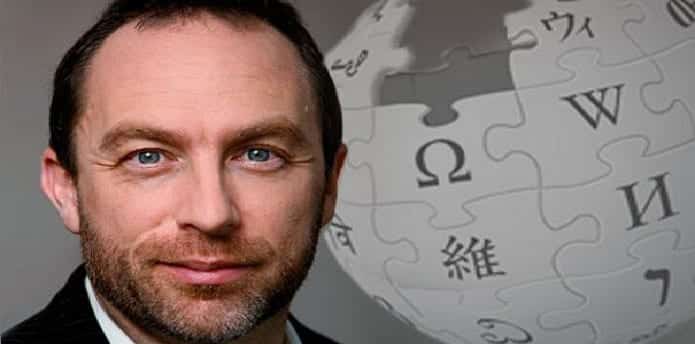Wikipedia Boss Jimmy Wales slams proposed government data encryption ban as ‘Moronic’
Criticizing government plans to ban data encryption, Jimmy Wales, founder of Wikipedia, argued that encryption is both not possible to stop and a direct result of overreaching digital surveillance. On the other hand, the government authorities are claiming that they are hindering attempts to protect the public from terrorism and other threats.
Referring to comments made by UK Prime Minister David Cameron earlier this year, Wales speaking at the IP Expo Europe event in London today asked: “in our country, do we want to allow a means of communication we cannot read? My answer to that question is: ‘No, we must not’.”
Cameron has suggested that the government will look to limit the use of tools on services like Snapchat and WhatsApp that are used to hide communications.
“Too late, David,” Wales retorted. “It is not possible in any sense of the word for the UK to ban encryption. More to the point, it’s a moronic thing to do” and predicted all major traffic would be encrypted soon.
He noted that as more websites move towards SSL encryption technology it is making it easier for people to operate online free from surveillance. Wikipedia itself has moved towards SSL encryption so all of its users’ browsing habits cannot be spied on by intelligence agencies or governments.
While acknowledging that there needs to be some form of governmental access to personal data in extreme circumstances, for uses such as terrorism prevention, Wales objects to blanket access to all personal data all of the time. He pointed out that it would be reasonable for there to be certain points in to network that were accessible by governments with a court-approved warrant.
“What I’m opposed to is to have zero privacy and scan everyone’s data all the time in case we see something,” he added.
“Human rights don’t go away just because you’re on the internet. We still have rights that governments need to respect.”
Citing the example of a Wikipedia editor who made edits to certain pages anonymously but was arrested and tortured for some of the information he had posted, Wales said that this hasn’t stopped some governments around the world from using browsing data to arrest civilians.
“It has been routine in recent years, and most cases don’t become famous.”
The Wikipedia boss says that extreme attempts by governments to access data has led to more encryption in recent years, ironically restricting the amount of data that is legally available to them.
“The overreach has actually cost the security services in a legitimate sense,” he said.
“Because they’ve been so ridiculous, people are moving to end to end encryption.”
He argues that if they government had not been so heavy handed in its attempts at data monitoring, they would still have legal access to communications concerning genuine threats that they no longer have, had they avoided programs such as the one made famous by the Snowden revelations.
According to Wales, in the recent years, the percentage of the internet’s data packets sent using SSL encryption has increased significantly, accounting for 29.1% of traffic in April this year, and is set to grow further.
“That will change by 2016 to 64.7%,” he said, indicating that a major part of this rise would be due to Netflix’s transition to SSL.
“All major traffic is going to be encrypted very, very soon,” he added. “And that’s a very good thing.”

